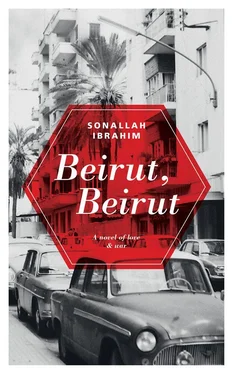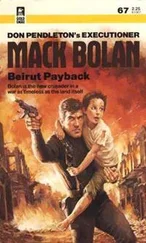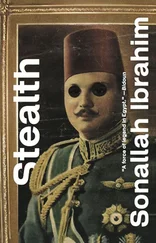It has been a privilege to translate Sonallah Ibrahim’s Beirut, Beirut , not only because it is a powerful work by a major author, but because it successfully blurs the genres of journalism and fiction, blending the rigor of the former with the narrative demands of the latter. Is this a work of fiction with a heavy dose of names and facts? Or is it a history lesson (like Antoinette’s film) in the guise of a novel? Either way we view Beirut, Beirut , it is obvious that Ibrahim’s own journalism background informs his approach to fiction, as it does in his other novels. As Robyn Creswell has pointed out in a 2013 profile of Sonallah Ibrahim in the New Yorker , “Ibrahim’s fictions are full of real or invented documents. They stick out of the surrounding text like exposed structural beams, as if he were purposefully drawing our attention to the archival labor involved in writing.”
The “archival labor” that Ibrahim put into Beirut, Beirut — with its tallies of civilian deaths, its enumeration of war crimes, and its revealing cinematic anecdotes — is amply demonstrated by his frequent quotations from headlines and the list of sources he includes at the end of the book. The republication of this novel in 2014 offers us an outsider’s contemporary view of the destructiveness and brutality that overtook Lebanon during a decade-and-a-half of civil war. What struck me most as I translated it is how it offers a window into a historical event that is at once very familiar and increasingly distant. On the one hand, the web of political relationships that launched and prolonged the Lebanese Civil War — a pattern of internal sectarian divisions manipulated by regional and international powers for their own ends — is a familiar one in our time. At the same time, the geopolitical alignments of late 1980 (the period when the novel is set) seem quite remote: the left/right affiliations of the various factions, for example, reflected an overarching Cold War reality that no longer sets an agenda for global politics. At the same time, Islamist political groups are notably absent among the factions the narrator describes and encounters.
Because so much of the book involves real events and public figures, the translation has involved a good deal of research on my part. I have made use of the author’s list of sources in order to locate and use the original wording of excerpts taken from those sources originally published in English.
The French colonial presence in Lebanon complicates the spelling of names in translation, since a translator is often faced with the dilemma of choosing between 1) a standard transliteration of an Arabic place name; 2) a commonly used French spelling; and 3) a less common English spelling. In some cases, where a Lebanese public figure had a well-established presence on English-language news databases such as Reuters or the New York Times , I used the most commonly-used spelling there.
I have generally not translated the names of city squares and other place names in Beirut, with the exception of the Sahat al-Shohada, which is familiar to visitors under its translated name, “Martyrs’ Square.”
Throughout the text, Ibrahim refers to Lebanon’s state intelligence bureau by its official Arabic name, “al-Maktab al-Thani”, which is itself a translation of the French term “Deuxième Bureau”. To better reflect the French influence on the institutions of the Lebanese state, I have chosen to refer to Lebanon’s espionage office by the French term, “Deuxième Bureau”, rather than the more prosaic “Intelligence Bureau”, or, even worse, “Second Office”, a literal translation that would simply puzzle Anglophone readers.
Occasionally, the Arabic text refers to Yasir Arafat by his informal name of “Abu ‘Ammar”. I have chosen to refer to Arafat by his actual name in my translation. Although “Abu ‘Ammar” will be familiar to Arabic readers, I didn’t want to risk confusing the English-language reader with an unfamiliar name.
Finally, given the specific historic and cultural details in a novel such as this, it was inevitable that I would need to rely on friends and colleagues to help me with particularly difficult references. I would like to thank Salah Chebaro, Ari Hagler, Zaki Haidar, Michel Moushabeck, Nadia Naqib and Alon Tam for their assistance in untangling some knotty words and unusual expressions in the text. As always, I take responsibility for any errors within.
Chip Rossetti












